Rethinking Grief: The Hidden Impacts Of Non-Traditional Grief On Employee Happiness
Grief. It’s a word we often use when talking about a loss of life. But, not a word we use when we talk about loss in a different context like a loss of hope, closeness to loved ones, or professional opportunities. The pandemic is a good example of how multi-layered grief can be. The pandemic caused some people to wait nine hours in line at the hospital with the hope that their loved one would get the care they needed. Some without success. While others lost their sense of financial independence, opportunities to move up in their careers, or the ability to spend time with the people they care about.
Someone grieving during the pandemic may not show up fully at work– and may not even know they’re grieving at all. Perhaps their definition of grief only involves the loss of life, but not the other pieces of their happiness and joy that were lost in the process. Suppressed grief impacts an employees’ happiness, productivity, and ability to show up authentically in the workplace.
It’s about time we rethink the concept of grief, how it shows up for people in the workplace and what we can do to support those experiencing grief.
Non-Traditional Forms of Grief
There are several non-traditional forms of grief that businesses and individuals often overlook in the business world. The forms may not involve a physical loss of life, but do involve a loss of something. Something that the employee is no longer able to ignore and that which impacts their ability to perform and do their best at work.
People are grieving the continuation of a global pandemic with no end in sight. The light at the end of the tunnel has shifted and many people are grieving the life, memories, and freedoms they had before the pandemic began.
People are grieving the loss of a promotion or the opportunity to work on a highly visible project. The missed opportunity for upward mobility in their careers could be a silent and painful low point in someone’s life right now.
Someone may be grieving how they aren’t meeting the expectations of others. Whether that’s failing to perform well on a high visibility project or letting down a family member, people grieve the failure to meet expectations and contribute positively to someone else’s success and happiness.
Someone may be grieving missing out on special opportunities. Particularly with the pandemic, there were concerts, vacations, birthdays, and celebrations that people missed or had to postpone. People may be grieving the loss of spending time with friends and family with no foreseeable reunion in sight.
People are grieving the loss of privacy. With work from home policies still dominating the business world, many people no longer have privacy or free time readily available. They may be wearing multiple hats as teacher, parent, cook, friend, and coworker all without an opportunity to relax, retreat or enjoy peace and quiet.
People are grieving the loss of unmet dreams and life goals. Some people had to put their dreams on hold to become a parent, care for a sick family member, or make it through a stint of unemployment. Their dreams and ambitions have been hampered and since then, they’re grieving the loss of their long-standing dreams and goals.
People are grieving from isolation. Someone just packed up and moved to a new place and they’ve lost a closeness to their friends, family, and all things familiar. People are grieving the major impact of isolation in a new place and the difficulty that comes with forging new relationships in the future.
People are experiencing financial grief. The loss of income or a recent dependency on someone else for financial support may be impacting someone’s mental wellbeing.
There are so many more examples of non-traditional grief that are overlooked in the workplace. But, you can imagine all the ways the grief mentioned above would impact somebody’s ability to show up fully at work.
Expanding Our Definition of Grief
There’s more to grief than a loss of life. Expanding that definition to include non-traditional forms of grief like the loss of work opportunities, social connections, finances and more can create a new lens by which we view grief and what we can do to support those experiencing it.
Companies that currently offer bereavement leave may want to include mental health or self-care time off. This special form of PTO would allow employees who are experiencing non-traditional forms of grief to take the time they need to work through it.
It’s important to also take the stigma out of the words “mental health days”. People often think they need some chronic condition in order to take those days off. But, that’s not true. Expanding our understanding of grief and encouraging the use of mental health or self-care time off can encourage employees to take the time they need to process grief outside of the workplace.
If maintaining the health and happiness of employees is an important part of your business, then it’s worth expanding the definition of grief and how your company can support people during these challenging times.
Final Thoughts
It’s okay to grieve, accept what was, and release it. With non-traditional forms of grief, we open ourselves up for new opportunities to reflect, heal, and show up fully. Expanding the definition of grief and giving employees the time off they need to process it, can provide a new level of healing and presence in the workplace.
There’s a responsibility that each employee and employer has to make sure non-traditional grief is recognized. If an employee is not willing to disclose that information to their employer, we can’t expect businesses to be aware of their situation and move towards action to support the person.
On the other hand, if the employer isn’t thinking broadly about their benefits like mental health or self-care time off, people may not feel the psychological safety to come forward and ask for the time they need to grieve.
This topic of non-traditional grief is something most organizations aren’t processing. But, they should. When they do, the health, happiness, and psychological safety of it’s employees can grow and flourish. The way we think about grief can be turned on its head to support a broader array of challenges that impact an employee’s ability to show up. When those non-traditional forms of grief are acknowledged, empathy, compassion, and authenticity can grow in the workplace.














